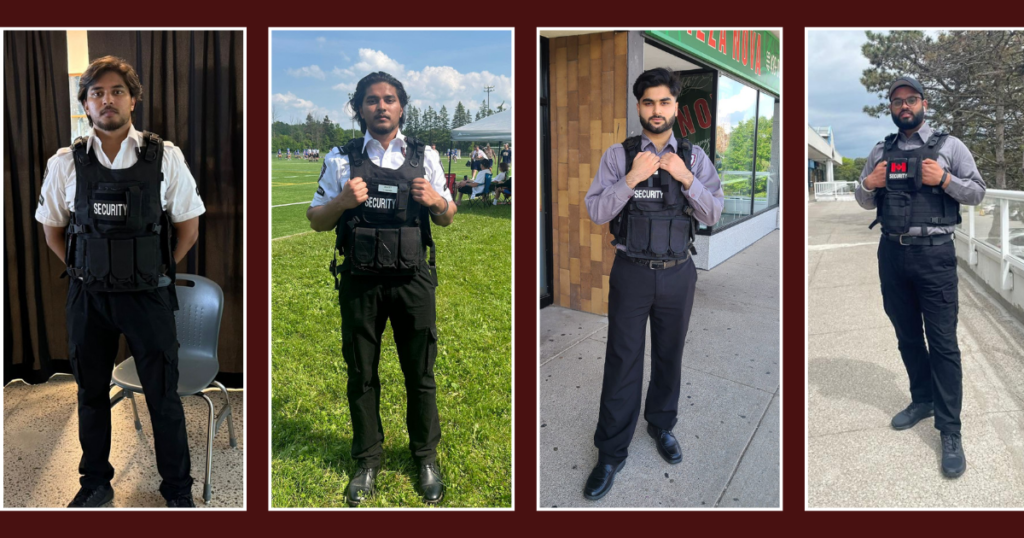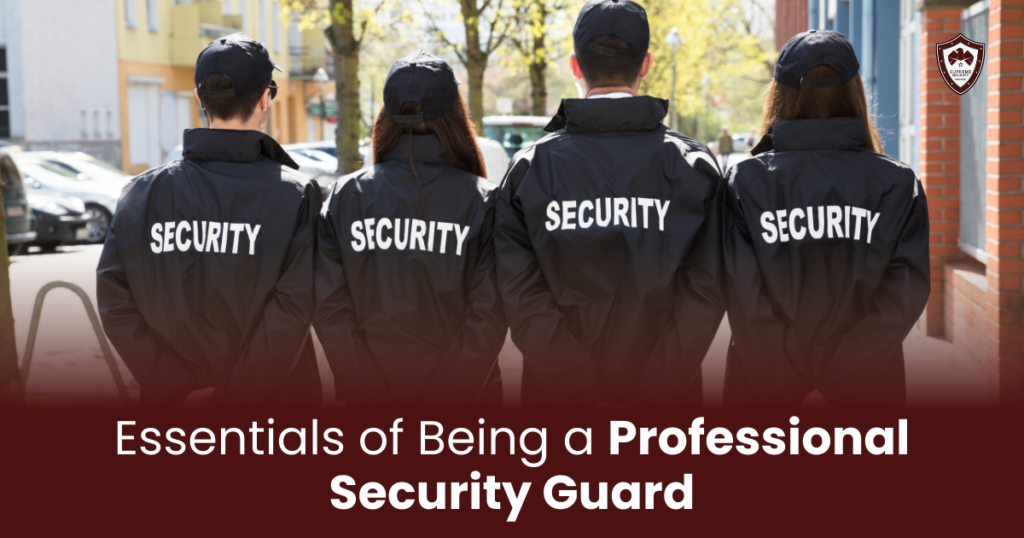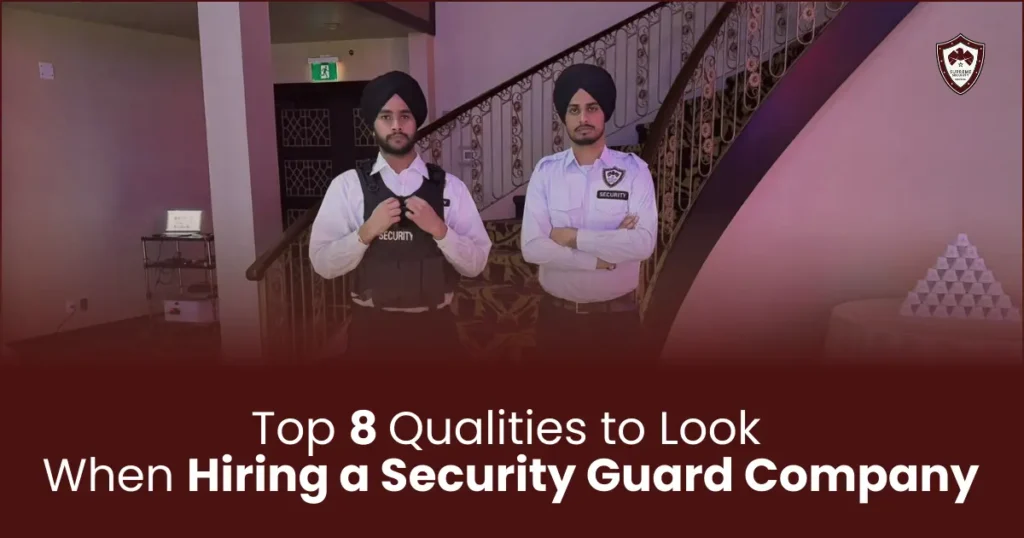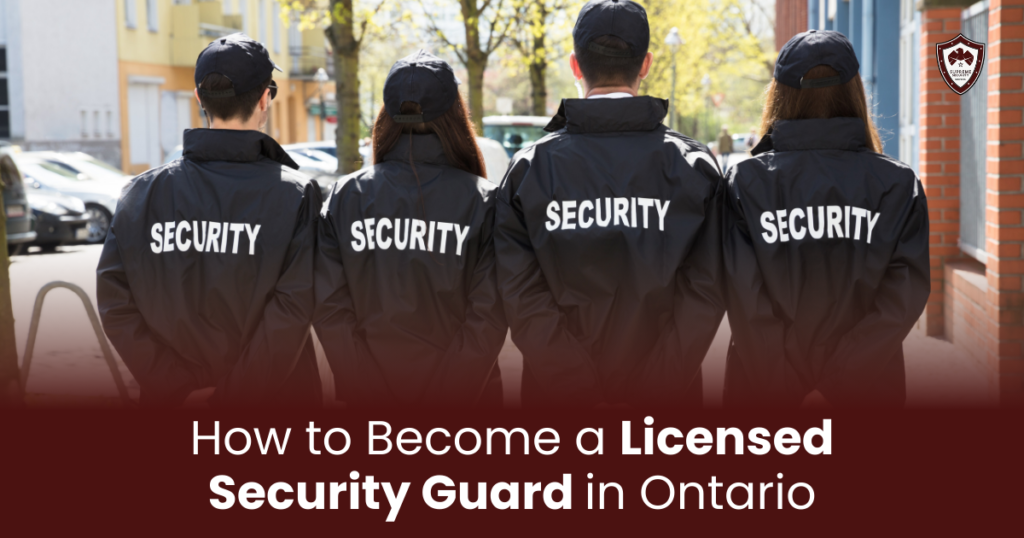A professional security guard can protect people, property, and assets. They are the first line of defense against possible threats, upholding safety through vigilance, quick thinking, and wonderfully honed skills. Since security issues are at an all-time high, professional services are no longer a luxury but rather a necessity in companies, events, and personal properties. Their presence scares away crime; however, an assurance of peace of mind is also given.
The growing demands for professional security services in Canada underscore the rising need of society for protection in every walk of life. Any individual that wishes to be a professional security guard must be well aware of elements of security, including training, situational awareness, and communication skills.
Table of Contents
What Defines a Professional Security Guard?
A professional security guard stands out from the crowd in that he owns primary qualities ensuring safety and security. Unlike an unskilled security worker, a professional guard boasts of more than just the physical presence he is a trusted protector with an understanding of the weight of his responsibility. Some of the qualities of a professional guard include:
- Vigilance: Alert and always scanning surroundings for potential threats.
- Reliability: Someone you can count on, even in really stressful moments.
- Integrity: Always upholding the law and ethical standards, no matter what.
- Physical Fitness: Always prepared to act in a moment, if necessary.
For example, on patrol, a professional security guard may notice a suspicious vehicle hanging around a building. Their vigilance and attention to detail provide authorities with time to act before an incident occurs, possibly preventing a robbery. By working this way, individuals represent the best of the traits of a good security guard they don’t wait for problems to arise; they anticipate and prevent them. Their expertise backs up the general effectiveness of professional security services.
Essential Skills Every Security Guard Professional Must Have
A security guard possesses both soft and technical skills. These are the components of providing security and comfort.
Technical Skills
- Surveillance: The capacity to keep an eye on video feeds, identify questionable activity, and take appropriate action
- Emergency Response: Understanding how to handle crises, including evacuations, fire safety, and first aid.
Social skills
- Communication: A professional guard must be clear and concise while reporting incidents or communicating with the public.
- Conflict Resolution: Resolving disputes without the occurrence of violence in a peaceful manner, de-escalating tense situations.
For example, when two people are fighting at the mall, an experienced security officer will note the incident and intervene calmly to mediate the conflict, after which the situation would be diffused without having resulted in any form of violence. This situation shows how professional security services depend on both technical expertise and social skills to keep the environment safe, making guards not merely enforcers but also peacekeepers.
Characteristics of a Good Security Guard
A professional security guard is defined by a number of core traits that make them both effective and dependable in their role. Here are some of the most critical traits that differentiate between a good and poor security guard:
- Attention: These professionals are always aware of their surroundings, thus noticing details that others may overlook.
- Physical Fitness: A maintained body ensures a guard can respond quickly in case of an emergency or physical confrontations.
- Quick in Decision-Making: The ability to make good judgments in times of need, from determining whether something is risky or not to the right course of action.
- Accessibility but Strictness: A good security guard must always strike a balance between being approachable and establishing authority if needed.
Professional security tips for this include maintaining a physically active lifestyle, keeping situational awareness, and constantly training to ensure sound decision-making. These qualities are most essential for security guards; their upkeep is necessary so they stay ready and reliable.
The Role of Professional Security Services
Professional security services are professionals that help instill a sense of comfort for customers by providing professionals who are seasoned and competent enough for guarding purposes. Their operations in security service often require tailoring security solutions according to specific client needs, from business to event security and household security. Professional security guards are tasked with ensuring safety and security by constant watch and responsibility.
Teamwork is highly essential for professional security services. In fact, guards often work together to cover all parts of the property and in addressing various issues that might concern security. For example, a group of professional security guards working at a corporate building may switch their patrols and so cover every aspect of the property.
Clients acquire benefits from professional security services through safety, reduced risk, and fast response times to incidents. Professional security guards with experience and coordination by experienced professionals will effectively assist businesses in reducing threats and creating a secure atmosphere in workplaces for the safety and protection of everyone.

Challenges Faced by Professional Security Guards
Professional security guards often encounter challenges that require resilience and quick thinking. Common challenges include:
- Long Hours: Many security guards work extended shifts, which can lead to fatigue and burnout if not managed well.
- High-Pressure Situations: Guards are at times obligated to respond to tense or dangerous situations like theft, violence, or even medical emergencies requiring calm decision-making.
- Boredom: Repeated tasks might lead to the boring nature of the job, thereby reducing engagement.
Professional security tips advise taking care of your body and mind. Taking small breaks, getting adequate sleep, and engaging in activities that contribute to physical fitness can prevent exhaustion. To overcome repetitiveness, one needs to stay alert with the job by constantly scanning their environment and maintaining good communication with other guards.
A motivational example: A security man in a shopping mall once faced a robbery attempt. Despite exhaustion, he relied on his training and stayed calm, thus successfully preventing the attempt. This moment showed the power of perseverance.
Professional Security Tips for Aspiring Guards
For those interested in becoming a security guard professional, the beginning of their career could be built upon solid preparation. Some important tips are:
- Training and Certifications: Always seek proper training and acquire certifications that meet local standards. Whether it’s CPR, first aid, or specific security courses, proper certification is imperative.
- Adaptability: A professional security guard needs to adjust quickly to various environments and even to the changing threats. Adaptability is a core characteristic for success.
- Continuous Learning: Security threats change continuously, hence the need to keep constantly improving of new techniques, tools, and technology in the industry.
To qualify for the position of security guard professional, here is a checklist:
- Being certified by completing security guard training
- Getting necessary certifications, such as CPR and first aid
- Keeping fit in terms of physical fitness
- A trend about the industry and technology change
- Communication and dispute resolution abilities
Conclusion
Therefore, it is a serious job, but a professional security guard needs dedication, expertise, and a strong sense of responsibility. In business, events, or protection in personal life, by setting values like vigilance, honesty, guards can help ensure a safe area for all.
For those who are in need of security, getting professional security services should be a top priority for maximum security coverage. Remember, a security guard professional does more than a humble stand of surveillance; it’s actually the doing of actual good in people’s lives by keeping them safe.
FAQ’s
Which 6 qualities are essential for being a skilled and qualified security guard?
- Integrity,
- Composure
- Team Player
- Dependability
- Physical Fitness
- Well-Groomed Appearance.
What is a Professional security guard?
In order to properly manage safety and respond to security issues, professional security guards must possess refined communication, observation, and situation awareness abilities in addition to ongoing training. Their responsibilities extend far beyond their physical presence.
Which 4 qualities are essential for a security guard?
4 fundamental qualities that are necessary for any security officer or guard.
- Dependable
- Accountable
- Communicative
- Flexible.



